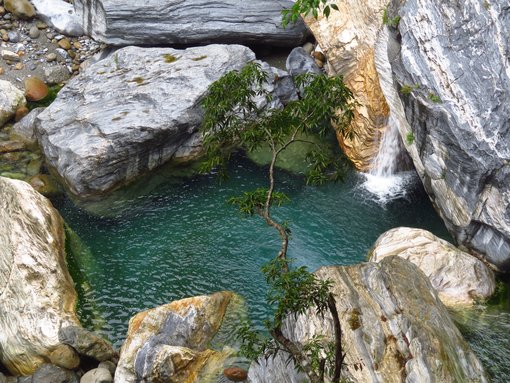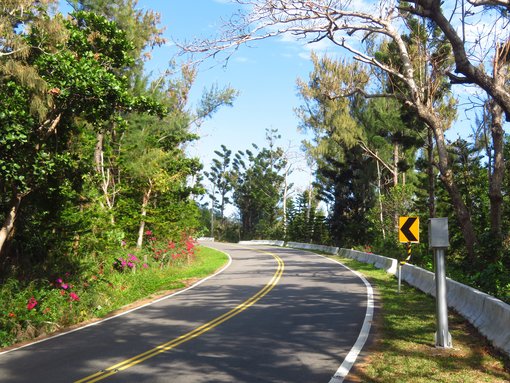Sometimes, you can't always find someone to hike with you. But that shouldn't stop you from hitting the trails for a solo hike.

Photo by @aprillbutcher
I recently moved to the Las Vegas area. I was finally living somewhere close enough to so many hiking trails that I could get out for a hike on a lunch break. But with my husband at work and really no new friends yet (damn you quarantine!), I often find myself hiking alone.
At first, the thought of hiking alone can be scary. Your paranoia sets in as you think about all the things that could go wrong.
“Will I get lost?”
“What if I get bit by a snake?”
But hiking solo is one of the most liberating experiences I've ever had, especially as a woman. I've learned independence and developed greater confidence in myself and outdoor skills.
Don't let the fear of hiking alone stop you from getting outdoors. Here are 5 simple safety tips for solo hikers.
1. Know Before You Go
The more you know about what to expect on your hike, the better you can prepare. And the more prepared you are, the more you'll minimize the risk of injuries and mishaps. Here are a few things you'll want to figure out before you hike.
Check The Weather
How hot or cold will it be? Is rain expected? What time is sunrise and sunset? Figuring these things out will help you prepare for a few things:
1. Clothing - the type of clothing and footwear you'll want to wear or bring that will be appropriate for the weather
2. Rain gear - will you need to bring a rain jacket or any other rain gear?
3. Timing your hike - if you're expecting extreme heat, consider hiking earlier or later in the day to avoid potential dehydration and heat exhaustion. But don't go too late in the day - you don't want to end up hiking alone in the dark!
Choose Your Hike

Photo by @aprillbutcher
For beginner solo hikers, I recommend picking more popular (less remote) trails that are well maintained and well marked. Start off with an easier trail that is within your comfort zone, even if it's one you've already hiked. This is a great way to build up your confidence in hiking alone and working towards bigger and bolder trails!
As you search for that perfect trail, you'll want to keep in mind the trail distance and intensity. Figure out how long it will take you to complete the hike and whether the terrain is flat or more strenuous. Pick a hike that is aligned (or even below) your fitness level.
Pro Tip - Make sure to pack the trail map (or take a picture of it on your phone) to help you navigate during your hike.
Understand Wildlife Safety
What kind of wildlife can you encounter? Do you know how to properly respond if there is an encounter?
I remember starting my hike back down Half Dome in Yosemite around dusk (I know what you're thinking...isn't that super late? YES. IT. WAS. But that's a hilarious story for another time). My friends and I casually stumbled upon a black bear in our path. My two friends didn't know what to do. But luckily I brushed up on some bear safety before the hike and knew that bears typically attack when surprised. So I made as much noise as possible (and may have even rapped a few bars outload?) to make our presence known. Luckily, the bear kept it moving and we were in the clear.
Pack Food & Water
Based on the information you know about weather conditions and trail intensity, you have a better idea of how much food and water you'll need for your hike.
2. Let Someone Know Your Plans

Photo by @aprillbutcher
Before even hitting the trails, it's important to tell a reliable friend or family member the details of your hike. Let them know what trail you plan to hike and what time you expect to be back. And don't forget to tell them you're safe when you're done with your hike!
3. Stay On The Trail
In order to minimize the risk of injury or getting lost, stay on the trail. Follow your trail makers and take pictures of any trail junction signs. This will help you figure out exactly where you are on your trail map and to navigate your hike safely.
4. Stay Aware
Eliminate any distractions that may keep you from being as vigilant as possible of your surroundings. I know it's tempting to pop in those headphones and put on some music, but this will take away your awareness of any wildlife, falling rocks or debris and other safety risks.
5. Trust Your Gut
I've learned that my instincts ALWAYS KNOW BEST. Whether I want to listen to them or not, they've always been right (I wish I knew this when single Molly was on that dating scene!). If something doesn't feel right, turn back to safety. There's no shame in that. If you're hiking alone, it's best not to put yourself at risk. So trust your gut!
Conclusion

Photo by @aprillbutcher
You may not always have a hiking partner to accompany you. But that shouldn't stop you from hiking alone. At first, solo hiking can be intimidating, scary and lonely but there are so many benefits! I've developed greater independence and self confidence. But my favorite part about solo hiking is that I have the opportunity to be alone with my thoughts without any distractions. I can truly focus on me.
I hope these safety tips give you the confidence to hike alone. Don't be afraid to start off with smaller, easier hikes within your comfort zone before working towards those bigger and bolder trails. Use this as an opportunity to grow and learn more about yourself.
Do you have any other safety tips that i may have missed?







